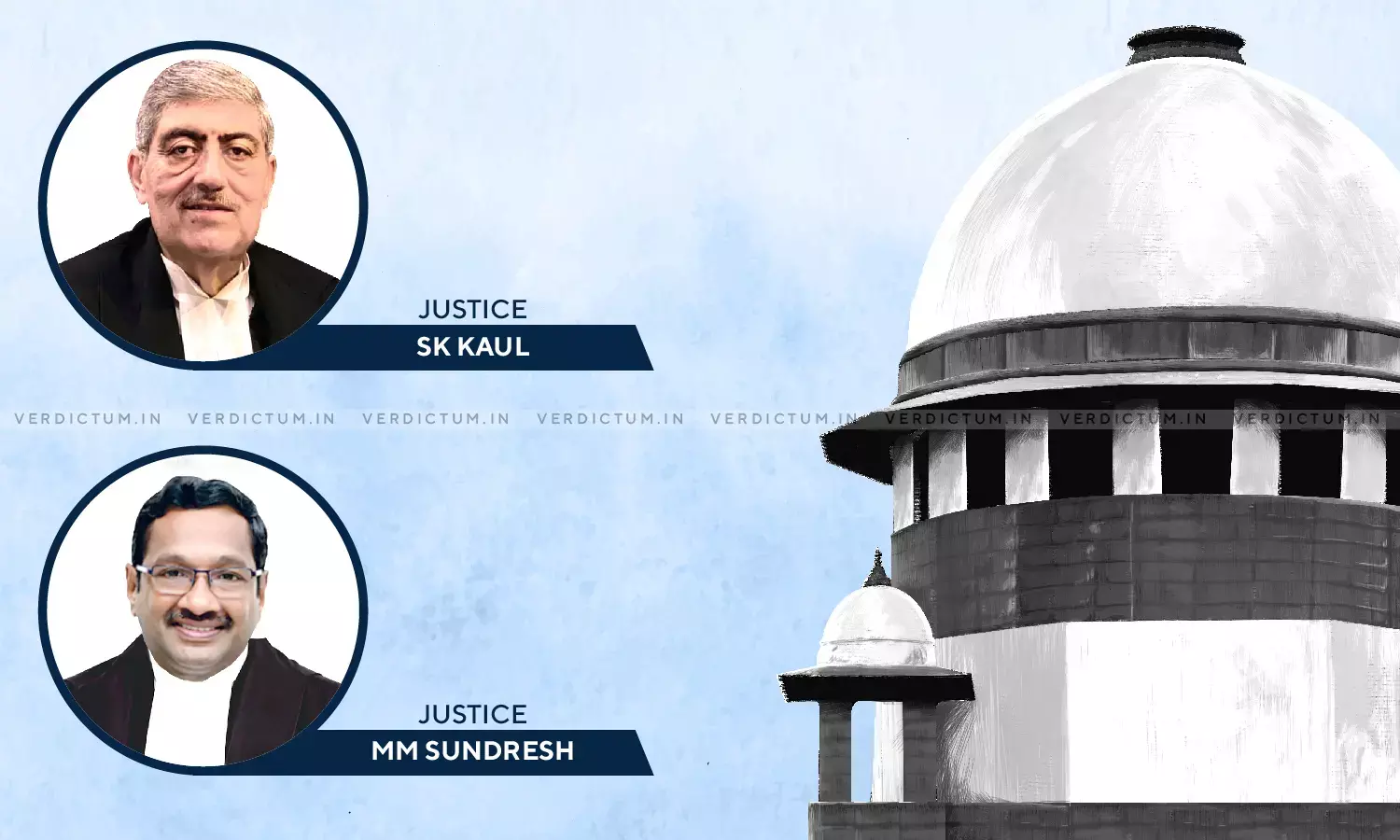Standard Of Proof In Departmental Proceedings Being Based On Preporderance Of Probabilities Is Lower Than That Of Criminal Proceedings - SC Reiterates

A two-judge bench of the Supreme Court comprising of Justice Sanjay Kishan Kaul and Justice M.M. Sundresh while relying upon the precedent Ashoo Surendranath Tewari v. Deputy Superintendent of Police, EOW, CBI, observed that the standard of proof in departmental proceedings, being based on preponderance of probability, is somewhat lower than the standard of proof in criminal proceedings where the case has to be proved beyond reasonable doubt.
The Court also held that in a case of a departmental proceeding i.e. a bank clerk forging signatures, handwriting experts need not be called since that would indicate the application of the test of criminal proceedings.
In this case, the Respondent was employed as a clerk-cum-cashier in the Appellant Bank. The Appellant Bank received a complaint from the widowed sister-in-law of the Respondent contending dishonesty, fraud, forgery and manipulation of documents. The Respondent based on the complaint was placed under suspension. The Inquiry Officer additionally opined that all the charges which were levied were proved against the Respondent. This led to the Disciplinary Authority after perusal of the reply to the show-cause notice, imposing the penalty of dismissal from service. The Appel filed against the Appellate Authority was also rejected.
The Respondent subsequently sought to raise an industrial dispute, which was referred by the Central Government to the Presiding Officer at the Central Government Tribunal-cum-Labour Court at Kanpur on the issue of the penalty of dismissal from service. The Tribunal dismissed the appeal and decided against the Respondent, This impugned order was sought to be challenged before the Allahabad High Court to be violative of the principles of natural justice. The High Court allowed the appeal in favour of the Respondent and held that handwriting experts should have examined the forgery since a fraud was alleged and a degree of investigation resorted by a criminal court should have been resorted to. This impugned judgment of the Allahabad High Court was challenged before the Supreme Court.
Counsel Krishan Kumar appeared for the Appellant i.e. the Indian Overseas Bank while Counsel Ramjee Pandey appeared for the Respondent before the Apex Court.
The primary issue that was for consideration was –
Whether the forgery of the signature ought to be examined by handwriting experts in a departmental proceeding?
It was contended by the Appellant that the Allahabad High Court fell into an error in applying the standards of proof of criminal proceedings to disciplinary proceedings as the misconduct by an employee in disciplinary proceedings is to be evaluated on the basis of probabilities and preponderance of evidence. Moreover, it was claimed that there was sufficient evidence to show that the Respondent had committed fraud and forgery by manipulating the signatures of the complainant i.e. Mrs. Meera Srivastava, his sister-in-law, by opening an account, operating the account, and appropriating the sum of Rs.20,000/- received through a demand draft as compensation on the demise of her husband.
Additionally, it was stated that the documents led to an irresistible conclusion that even those charges relating to insubordination, disobeying the orders of the higher authorities, forging the suspension letters were proved and even by themselves were sufficient to award the punishment of dismissal from service.
On the other hand, the Respondent claimed that all of the charges levied against him were in any case not proved as no evidence had been led in that behalf and reliance could not be placed only on documents. They referred to the case of Lalit Popli v. Canara Bank to contend that the handwriting was not examined by the experts.
The Supreme Court held, "That there are certain inherent legal limitations to the scrutiny of an award of a Tribunal by the High Court while exercising jurisdiction under Article 226 of the Constitution of India. We may refer to the judgment of this Court in GE Power India Ltd. (Formerly Known as M/s. Alstom Projects Ltd.) v. A. Aziz . If there is no jurisdictional error or violation of natural justice or error of law apparent on the face of the record, there is no occasion for the High Court to get into the merits of the controversy as an appellate court. That too, on the aspect of an opinion formed in respect of two sets of signatures where the inquiry was held by an officer of the bank who came to an opinion on a bare comparison of the signatures that there is a difference in the same. It has been looked at from the perspective of a "banker's eye". This is, of course, apart from the testimony of the sister- in-law of the respondent."
It was further observed that - "The High Court appears to have applied the test of criminal proceedings to departmental proceedings while traversing the path of requirement of a hand writing expert to be called for the said purpose. This would go contrary to the settled legal position enunciated by this Court.
The Court referred to the precedent where it was observed while referring to earlier judicial precedents, that the standard of proof in departmental proceedings, being based on the preponderance of probability, is somewhat lower than the standard of proof in criminal proceedings where the case has to be proved beyond a reasonable doubt.
In the case, the Supreme Court held that since the Respondent was a clerk-cum-cashier, it was a position of confidence. Here, the Court determined that the Respondent had breached the confidence of his widowed sister-in-law and the bank where he was employed. Hence, the Court deemed it fit not to interfere with the decision either on law or moral grounds. Moreover, the Court affirmed the punishment i.e. non-continuation in service, imposed on the Respondent since it was proportionate.
Thus, the impugned judgment of the Allahabad High Court was set-aside and the appeal was accordingly allowed in favour of the Appellant.
Click here to read/download the Judgment

